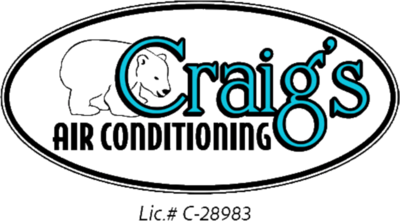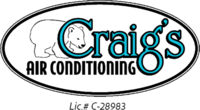How Much Does Air Conditioning Cost In Hawaii?
Hawaii is well-known for its hot climate. Hence, having air conditioning is not just about comfort; it's almost a necessity. Let's dive into what you need to know about air conditioners and their prices in Hawaii.
Table of Contents
Hawaii's tropical climate means that heating is rarely needed. Instead, the main focus is on cooling. The islands mostly use three types of systems: central AC, ductless mini-splits, and window units.
Central Air Conditioning
Central air conditioner units are highly valued for their ability to consistently cool an entire house through a series of interconnected ducts and vents. They are ideal for homes already equipped with ductwork and provide even cooling, making them great for large houses. The average costs for central air conditioning are as follows:
The unit cost ranges from $5,000-$10,000, while installation charges are typically between $3,000-$7,000.
Window AC Unit
These compact and budget-oriented units are designed to cool individual rooms. They are an excellent alternative where central AC isn't feasible and are perfect for adding extra cooling in specific spaces. However, window units may not be ideal for larger spaces, especially in areas exposed to intense sun or high heat.
The average costs for window AC units are as follows: The unit itself costs between $150-$600. Installation is DIY-friendly, but if you opt for professional installation, it may cost between $100-$300.
Ductless Mini-split
Ductless Mini-Split Systems: Often called mini split AC, these systems are tailor-made for homes without existing ductwork.
Features: They provide targeted cooling solutions, allowing users to cool specific areas of their homes individually.
Benefits: These systems are highly energy efficient, which can lead to long-term savings on energy bills. They're also versatile, allowing homeowners to adjust cooling per individual room requirements.
Drawbacks: Initial costs can be higher than window units, and they may not be suitable for homes that simultaneously require consistent cooling in all rooms.
Unit Costs: The unit cost is typically between $2,500 to $4,500 per unit. The total cost can change a lot based on how many units you install. It can be between $20,000 and $30,000 or even more for bigger installations.
Installation Costs: Installation typically ranges between $1,500 to $3,000. As with unit costs, the total installation cost will also be influenced by the number of units in your AC system.
Comparing Air Conditioner Cost By Type
| Air Conditioner Type | Unit Cost | Installation Cost |
|---|---|---|
| Central Air Conditioning | $5,000-$10,000 | $3,000-$7,000 |
| Window AC Unit | $150-$600 | DIY or $100-$300 |
| Ductless Mini-Split (Single Zone) | $2,500-$4,500+ | $1,500-$3,000+ |
Note: Prices can vary drastically based on factors such as the type of unit, its efficiency, brand, capacity, and installation complexity. For the most accurate estimates tailored to your needs, it's highly recommended to consult with a qualified HVAC contractor.
Investing in an AC unit goes beyond the unit's price. Installation, maintenance, and quality are factors contributing to the cost.
High-Quality Equipment: Higher-end units often assure extended efficiency and durability.
System Size & Ductwork: Larger homes require more powerful units, sometimes necessitating complex ductwork.
Custom Work & Electrical Adjustments: Any tailored modifications or electrical tweaks can add to the expense.
Professional Labor: Investing in professional expertise ensures a seamless setup on the first attempt.
Permits & Special Features: Hawaii's strict regulations, combined with unique unit features, can increase costs.
Location of Systems: Where the condenser and indoor unit are placed can affect the price, as it may need extra parts or complicated solutions.
In Hawaii, as much as half of the energy used in your home goes to cooling, according to Hawaii Energy. Air conditioners often run for extended periods, significantly impacting energy bills. In fact, cooling costs alone can constitute up to 50% of an energy bill, potentially rising even more in certain situations. This high energy consumption emphasizes the need for a carefully chosen AC system.
Window units may appear inexpensive initially. However, mini-splits and central systems are generally more energy-efficient in the long term. This is particularly true when considering inverter technology.
We offer complimentary free estimates on all mini split and central systems. Explore energy-efficient options and systems tailored to your home.
Request EstimateInverter Technology for Enhanced Efficiency
Inverter technology is a cutting-edge feature found in many modern AC systems. It allows the compressor in the air conditioner to adjust its speed based on the cooling needs of your home. Inverter technology allows for a gradual and energy-efficient adjustment, unlike traditional systems that switch on and off at full capacity. Think of it as a dimmer switch for your air conditioner.
Why is a SEER Rating Important?
Air conditioning units with higher SEER ratings can lead to considerable savings on monthly electricity bills. These units help the environment by reducing carbon emissions and have advanced features for user comfort. When examining various AC systems, you'll notice a correlation between their prices and SEER ratings. Essentially, a higher SEER rating indicates better cooling efficiency throughout a season.
Installation Process: Diy Vs. Hiring A Professional
While some units allow for DIY installation, hiring a professional guarantees safety, optimal performance, and strict adherence to local regulations. Here are some considerations:
Safety: Professionals undergo training to handle electrical and structural challenges that may arise during the installation, ensuring safety.
Efficiency: Incorrect installation can lead to inefficient cooling, increasing electricity bills over time. A professional ensures that the unit operates at its peak efficiency.
Warranty: Many manufacturers require professional installation to uphold the product's warranty.
Government Incentives and Rebates: Always check for available rebates and incentives. Programs like Hawaii Energy offer attractive rebates for qualifying central and mini-split systems.
Solar Power Integration: Using solar panels in Hawaii can lower energy costs by integrating them with your AC, combining environmental benefits with financial savings.
Thermostat Tactics: In summer, set your AC to 78°F. Use the "auto" mode for efficient fan speeds. Additionally, adjust the thermostat for energy-efficient sleep.
Seal, Insulate, and Save: To save energy, make sure you tightly seal windows and doors. Use clear covers on jalousies and add weatherstripping. Insulate attics well and regularly check ductwork.
Improve airflow: Clear vents, use ceiling fans with air conditioning, and direct air to the rooms you use the most.
Energy Rebates: Utilize regional rebates, like Hawaii Energy, for transitioning to energy-efficient appliances.
For more comprehensive insights into HVAC savings, check out our detailed article
Maintenance costs are vital to factor in when considering air conditioner ownership. Regular maintenance ensures the system operates efficiently and extends its lifespan.
Frequency Of AC Maintenance
Ideally, you should schedule a professional service at least once a year. Routine inspections enhance energy utilization and identify potential issues, minimizing the likelihood of significant breakdowns or costly repairs.
Discover more about our comprehensive AC maintenance plans and how they can extend the life of your unit.
Unexpected malfunctions can cause unnecessary stress for homeowners. Preparing for potential repair expenses is essential. Relying on an HVAC expert guarantees accurate fault detection and the right solutions.
Regular check-ups can also foresee problems before they escalate, saving you both time and money in the long run.
For swift and reliable AC repair services in Hawaii, trust our experienced technicians to quickly diagnose and fix your AC issues.
In Hawaii, understanding the complex details of air conditioning costs is crucial. While the initial investment might appear significant, the long-term comfort, efficiency, and savings an AC unit provides are invaluable. To make good choices, residents need to understand the many factors that affect costs, so they can balance comfort and affordability.
Should you consider a replacement or an upgrade? Arm yourself with the best knowledge to make an insightful choice.
Get A Free Estimate Today!
Contact us (808-682-0970) or inquire online for a free estimate on all systems. Let us guide you to your ideal cooling solution.
-
A combination of import costs, higher labor rates, and specific island regulations can contribute to the increased costs.
-
Designers have created many modern air conditioning systems to be energy efficient and environmentally friendly. Additionally, solar power integration can further reduce your carbon footprint. If you're considering a new AC system, explore our installation services for a hassle-free setup.
-
Consult with an HVAC professional to assess your home's size, insulation, sun exposure, and other factors for the right unit recommendation.
-
It depends on the unit's age, repair costs, and efficiency. Often, if a unit is over 10 years old and frequently malfunctions, replacement might be more economical.







